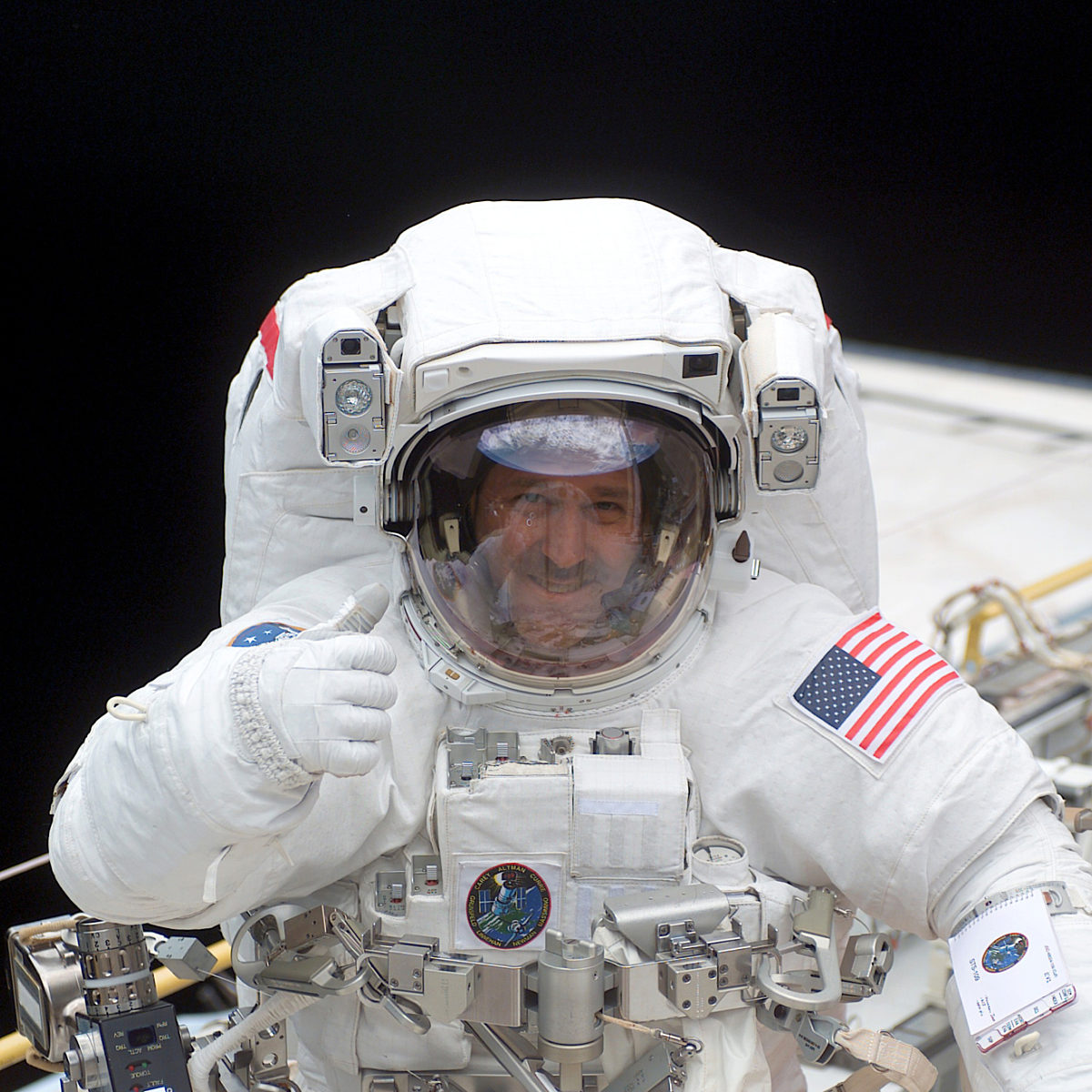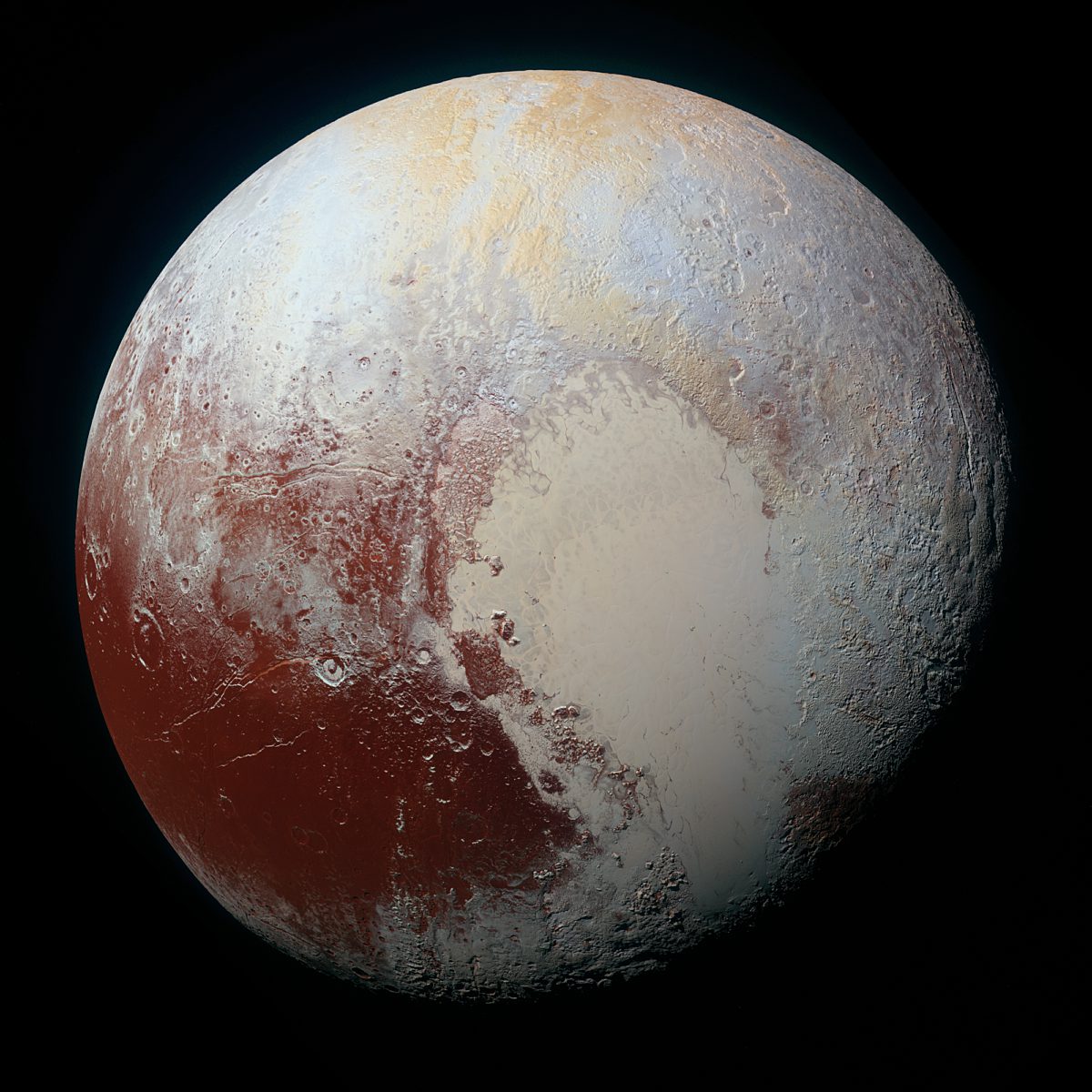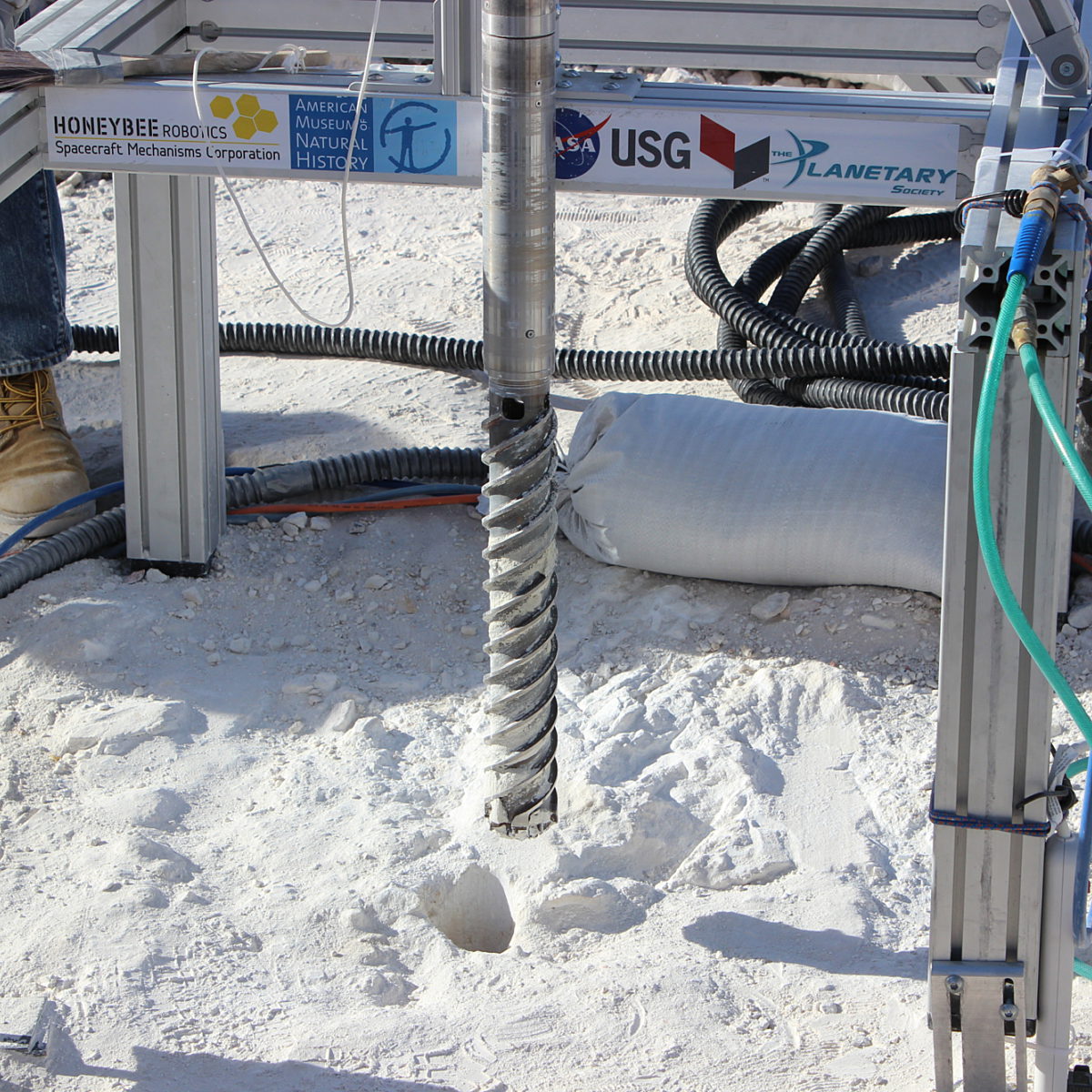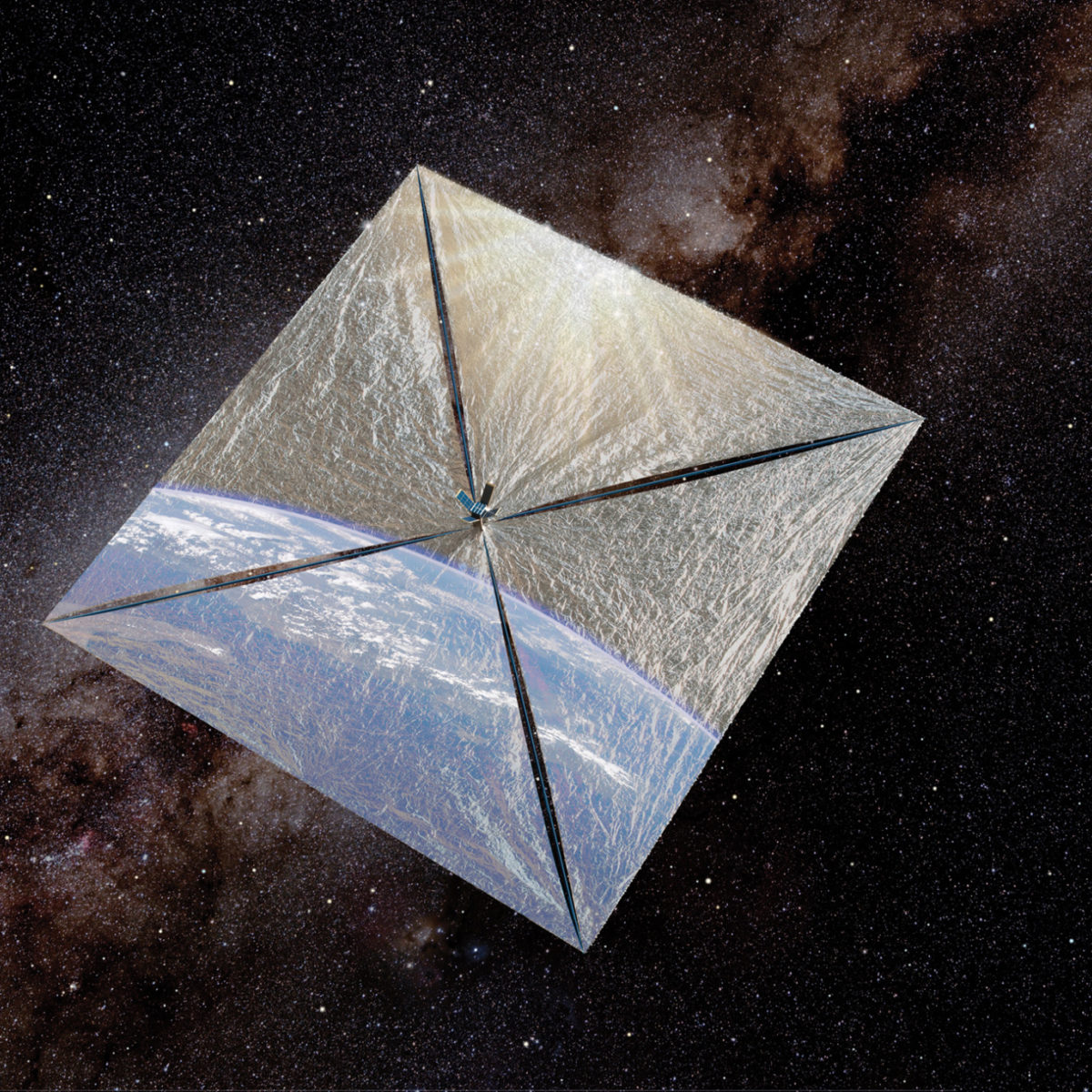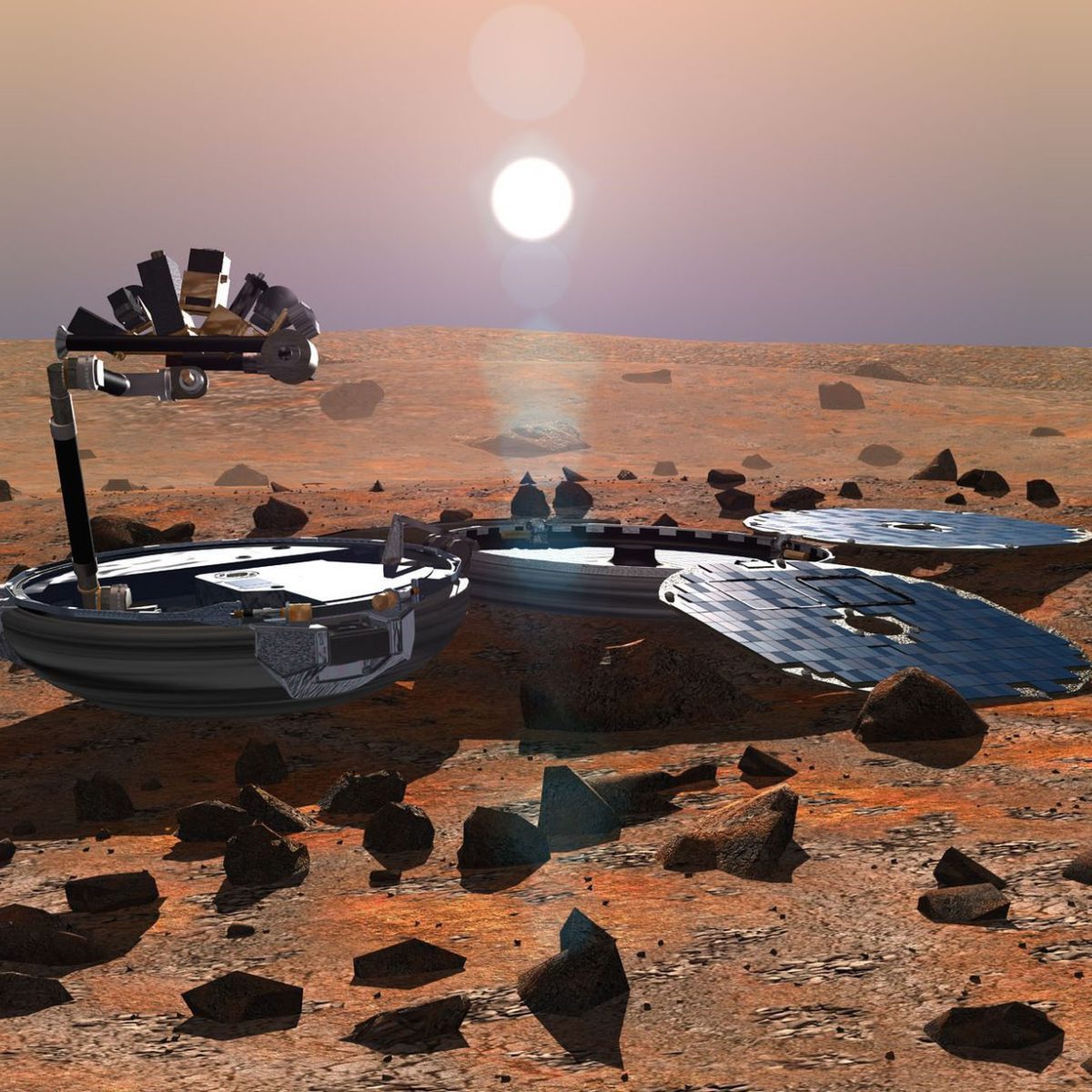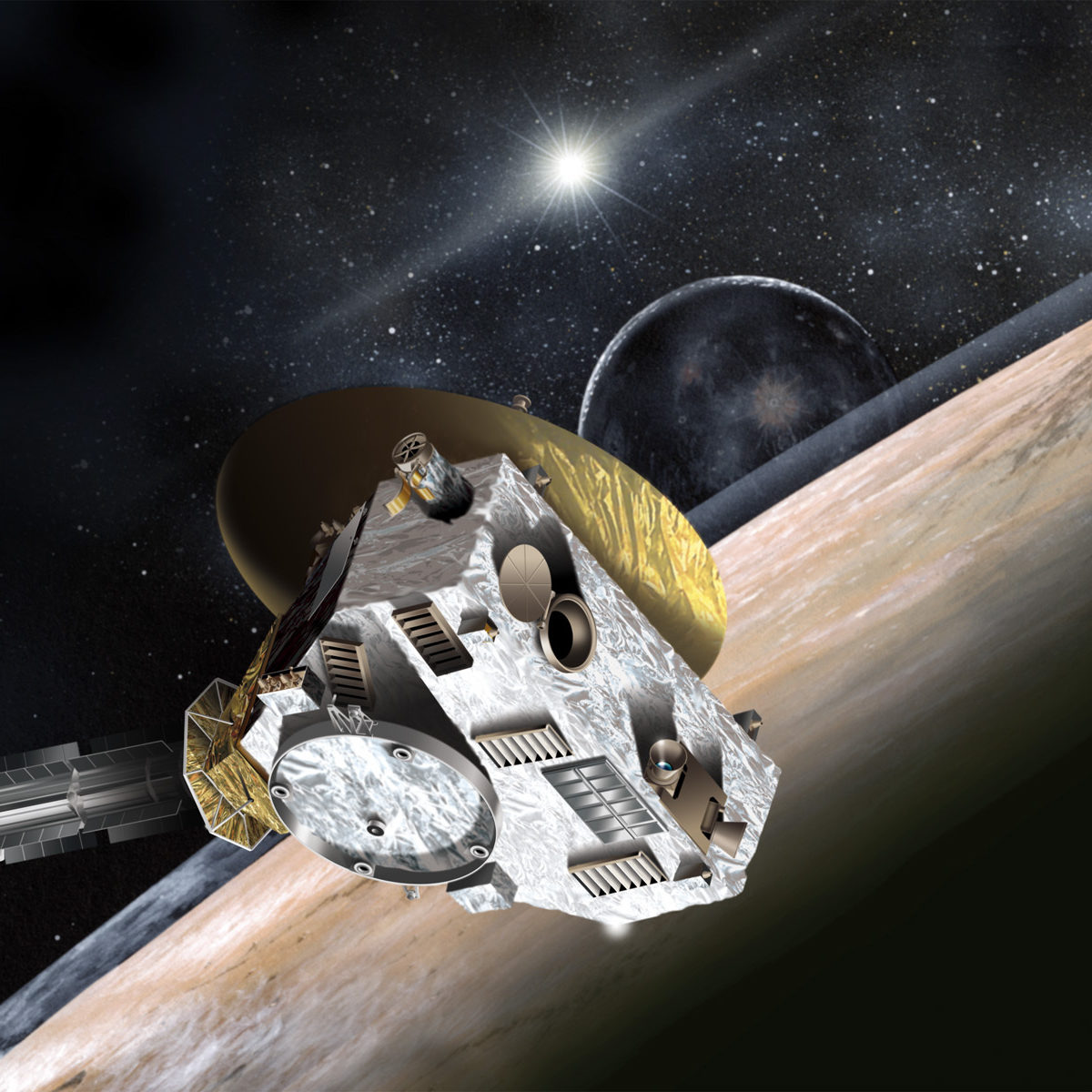Since 2002, Planetary Radio has visited with a scientist, engineer, project manager, advocate, or writer who provides a unique perspective on the quest for knowledge about our Solar System and beyond. The full show archive is available for free.
Search Planetary Radio
Scientists have found a menagerie of complex organic compounds on the comet visited by the Rosetta spacecraft that connect it with the birth of our solar system.
First we return to JPL for an update on the Mars Helicopter that has just been attached to the belly of the 2020 Mars Rover. Then it’s across the pond for a review of the amazing science coming from the Rosetta mission that spent years exploring comet 67P/Churyumov-Gerasimenko. We wrap things up with another What’s Up view across the solar system and beyond.
Mat Kaplan talks with Matt Taylor, the Rosetta Project Scientist, just two weeks after the spacecraft touched down on 67/P.
The European Space Agency’s magnificent Rosetta mission ended last week as the spacecraft gently touched down on the comet it has revealed.
In two years a Near Earth Asteroid now known as Bennu will have a visitor from Earth. OSIRIS-REx Principal Investigator Dante Lauretta reports on his mission’s successful launch.
In its nearly five decades, NASA has created or improved thousands of technologies, processes and innovations. Dan Lockney is in charge of making sure these solutions are found and utilized by industries and others in need.
John Grunsfeld closes our coverage of the Space Foundation’s 32nd annual Space Symposium in Colorado Springs. We also meet the leaders of the New Generation Space Leaders Program.
Bruce Betts, Jason Davis, Casey Dreier and Emily Lakdawalla gather with Mat Kaplan for a fascinating and informative Planetary Radio Extra year-in-review roundtable discussion.
The newly-approved federal budget includes great news for fans of space exploration and development. Texas Congressman John Culberson led the fight for a Europa mission, the SLS rocket, commercial crew and more. He tells us why on this week’s show.
Drilling through many meters of ice to Europa’s ocean or to the pristine sub-surface layers of Mars will be hard. The Planetary Deep Drill prototype has shown that it may be a practical approach. Join Mat Kaplan and Planetary Society colleagues at the field test site deep in California’s desert.
Emily Lakdawalla returns from the annual Division for Planetary Sciences meeting with big news from around the solar system. Then we talk with science journalist Traci Watson about the departure of the great Arecibo radio telescope’s Director and the funding challenge that could shut down the observatory.
Two visits with the Planetary Society Senior Editor this week, as Emily first provides an update on the Rosetta comet mission and then returns with an extended look ahead at the New Horizons Pluto encounter next week.
The road to space has been a rocky one for most spacecraft, and LightSail is no different. Challenges remain even with the May 20th launch of a test mission approaching. Embedded LightSail reporter Jason Davis checks in with the latest news.
Senior Editor Emily Lakdawalla has returned from the Lunar and Planetary Science Conference in Texas with the latest revelations about our solar system. She shares them in an extended report.
The Beagle 2 Mars lander disappeared after it separated from the Mars Express orbiter on Christmas Day, 2003. Eleven years later, it has been found, partially-deployed on the Martian surface. Longtime Beagle 2 mission leader Mark Sims tells the story.
The Planetary Society has just announced that LightSail will be launched into orbit on its first test flight in May. We’ll talk with Project Manager Doug Stetson and embedded LightSail reporter Jason Davis about what to expect.
The Planetary Society’s experts look forward to a great year of firsts in the solar system and beyond.
Our annual review of the greatest events and accomplishments over the last year features analysis and commentary by Bill Nye the Science Guy, Emily Lakdawalla, Jason Davis, Casey Dreier and Bruce Betts, along with a special new year’s gift of Neil deGrasse Tyson.
Not just the air. Where is the water that was plentiful on the red planet billions of years ago? MAVEN may help answer these questions. Principal Investigator Bruce Jakosky reports on the early, exciting science data.
Not just landed. Orbited, too. European Space Agency Senior Science Advisor Mark McCaughrean helps us celebrate the Rosetta orbiter and the Philae lander.


 Explore Worlds
Explore Worlds Find Life
Find Life Defend Earth
Defend Earth







